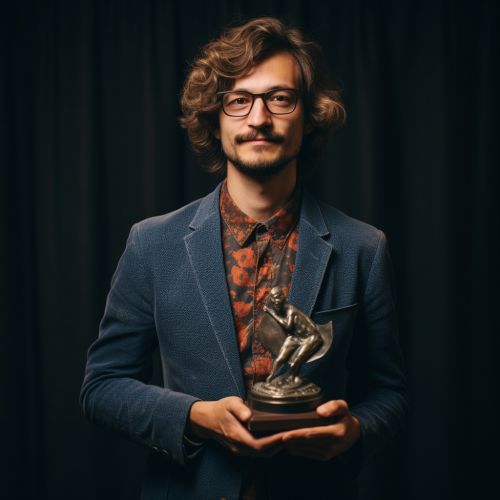Artur Ekert
Early Life and Education
Artur Ekert was born on 19 September 1961 in Wrocław, Poland. He completed his early education in his hometown before moving to the United Kingdom for further studies. Ekert pursued his undergraduate degree in physics at the University of Manchester, where he developed a keen interest in quantum physics.
After completing his undergraduate studies, Ekert decided to delve deeper into the world of quantum physics. He enrolled in a doctoral program at the University of Oxford, where he worked under the guidance of esteemed physicist Sir Roger Penrose. Ekert's doctoral thesis focused on quantum cryptography, a field that was still in its infancy at the time.


Quantum Cryptography
Ekert's work in quantum cryptography is perhaps his most significant contribution to the field of quantum physics. In 1991, while still a doctoral student, Ekert proposed a new method of quantum key distribution (QKD) based on Bell's theorem. This method, now known as Ekert protocol, is considered one of the foundational concepts in quantum cryptography.
The Ekert protocol uses entangled quantum states to create a secret key between two parties. This key can then be used to encrypt and decrypt messages. The security of the Ekert protocol is guaranteed by the laws of quantum mechanics, making it virtually immune to eavesdropping.
Ekert's work on quantum cryptography has had a profound impact on the field of information security. His protocol has been implemented in various quantum communication systems and has paved the way for the development of quantum secure communication networks.
Academic Career
After completing his doctorate, Ekert continued his research in quantum physics and cryptography. He held various academic positions at different institutions, including the University of Oxford, the University of Cambridge, and the National University of Singapore.
In 2007, Ekert was appointed as the Lee Kong Chian Centennial Professor at the National University of Singapore. He also served as the Director of the Centre for Quantum Technologies (CQT) at the same university. Under Ekert's leadership, the CQT became a leading research center in quantum technologies.
Ekert's academic contributions extend beyond research and leadership roles. He has mentored numerous students and young researchers, many of whom have gone on to make significant contributions to the field of quantum technologies.
Awards and Honors
Throughout his career, Ekert has received numerous awards and honors for his contributions to quantum physics and cryptography. In 1995, he was awarded the Maxwell Medal and Prize by the Institute of Physics for his work on quantum cryptography. In 2007, he received the Dirac Medal for his contributions to the development of quantum information science.
Ekert's work has also been recognized by the broader scientific community. In 2017, he was elected a Fellow of the Royal Society, one of the highest honors in the scientific community.


Impact and Legacy
Artur Ekert's work has left a lasting impact on the fields of quantum physics and cryptography. His protocol for quantum key distribution has revolutionized the way we think about information security and has opened up new possibilities for secure communication.
Beyond his specific contributions to quantum cryptography, Ekert's broader work in quantum physics has helped to advance our understanding of the quantum world. His research has pushed the boundaries of what is possible in quantum technologies, paving the way for future innovations in this field.
